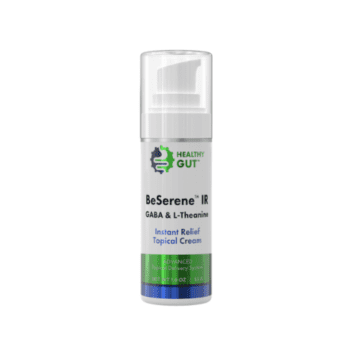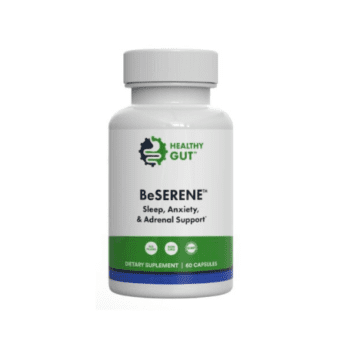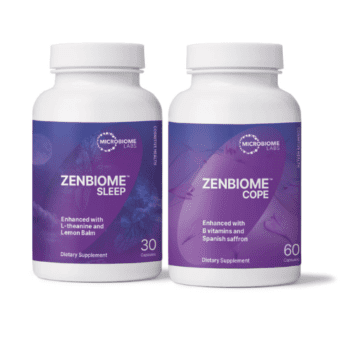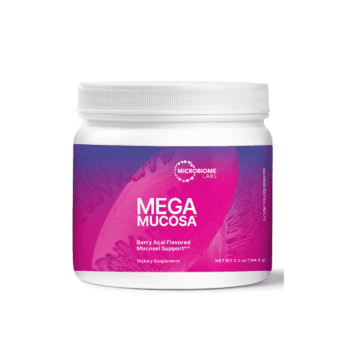

More Posts from
Gut Microbiome & Digestion

Meet Your Microbiome: The Human Microbiome and How to Optimize It
Meet Your Microbiome: The Human Microbiome and How to Optimize

Benefits of Probiotics Including Improved Gut Health
Benefits of Probiotics Including Improved Gut Health “Probiotics” has become

Gut Microbiome Health and the Gut-Immune System Connection: Part 2 Lower GI
Gut Microbiome Health and the Gut-Immune System Connection: Part 2
Interested in Learning About Mega IgG2000?
Did you know? The raw material in MegaIgG2000 has 57 studies (43 of which are human clinical trials) and binds to microbial/fungal/viral antigens, including lipopolysaccharides (LPS), H-Pylori, C-Diff toxin A and B, E.Coli, Salmonella, Staphylococcus, and more…
MegaIgG2000™ provides outstanding support for complex, symptomatic patients who need to get their diverse issues under control. It is a go-to product for those needing digestive and gut permeability support.
Want to see the research? Click Here!
Immunoglobulin G (IgG), the major component of MegaIgG2000™, is the most abundant antibody in humans. It can typically be found in blood and extracellular fluid, where it supports the immune system’s efforts to evict unwanted organisms from the body.
Mega IgG2000™ Background
Immunoglobulin G (IgG), the most abundant antibody in the system, can be found in blood and extracellular fluid, allowing it to control infections in the body. IgG antibodies can bind a variety of pathogens, including bacteria, viruses, and fungi, as well as their toxic by-products.1 Binding these toxins will neutralize them and allow the immune system to safely remove them from the body. IgG and other antibodies are commonly found in human and other animals’ colostrum, or early breastmilk.
Mega IgG2000™ Supplement Ingredients

Mega IgG2000 is a dairy-free immunoglobulin concentrate that supports healthy digestion, neutralizes microbial and environmental toxins, while improving gut barrier function. Unlike other milk-derived immunoglobulins on the market, Mega IgG2000 is derived from bovine serum, making it lactose-free, casein-free, and β-lactoglobulin-free.**
Indications
Autoimmune conditions
Gut infections
Seasonal or food allergies
Food sensitivities
Acute stress or illness
Advantages of Mega IgG2000™
Supplemental immunoglobulins are only available from two sources: serum and colostrum. Most immunoglobulin supplements are sourced from colostrum as it is more cost-effective, but colostrum also contains about 25% IgG immunoglobulins in addition to lactose. In some cases, colostrum can also contain soy isoflavones, dairy proteins like casein or whey, and toxins.
Serum-derived bovine immunoglobulins (SBI) contain over 45% IgG immunoglobulins and are free of other contaminants like pus, lactose, dairy proteins, and soy isoflavones. Mega IgG2000 has a higher concentration of IgG immunoglobulins boasts the highest purity of any immunoglobulin supplement on the market.
Suggested Use
Ages 2+. Take 4 capsules daily with or without a meal, or as directed by your healthcare professional. Capsules may be opened, and powder may be mixed into food or drink. Mega IgG2000 is safe to take while pregnant and/or nursing.
Hydration is highly encouraged when taking Mega IgG2000. When the immunoglobulins bind toxins, your body clears them from the system by excreting them in the feces. This can lead to more fecal bulking, similar to taking a fiber supplement. If you are too dehydrated, the immunoglobulins can cause stools to be harder than usual. Increasing your intake of water can resolve this problem quickly.
Duration
MegaIgG2000 can be taken indefinitely to reduce the toxic load on the liver, or taken as needed during times of stress, cold and flu season, or when dining out in order to strengthen the immune system.
Synergy
Mega IgG2000 can be very effective when taken alongside MegaSporeBiotic. Since Mega IgG2000 can effectively bind and neutralize a variety of toxins, taking it when starting the aforementioned products can help reduce the frequency and occurrence of common die-off symptoms.
Contraindications
The immunoglobulins used in Mega IgG2000 are derived from the serum of cows and may not be suitable for vegans or individuals adhering to various religious traditions.
Clinical Research & Supporting Research Studies
Below are the supporting research studies as they relate to Mega IgG2000 and associated raw materials.
Click the “+” button to expand each research study for general information such as the introduction, discussion, and conclusion. Rebel Health Tribe is not associated with any of the research studies, published information or external linking websites. However, we have done our best to research and provide direct links and list the PI’s as published.
Note: External links may require payment for full research studies to which Rebel Health Tribe does not have direct access or a license to disseminate the information directly. The below links are provided as supplemental material and are to be used for educational purposes and reference, only. All information & links provided below are public and sourced from the web directly.
Dale Wilson 1, Malkanthi Evans 2, Eric Weaver 3, Audrey L. Shaw 3, and Gerald L. Klein 3
Background:
There is increased interest in combining nutritional modalities with pharmacological therapies for managing patients with diarrhea-predominant IBS (IBS-D).
Conclusion:
This pilot study showed that nutritional therapy with either 10 g/day or 5 g/day of SBI in 30 patients was well tolerated and resulted in statistically significant within group improvements in both symptom days and in daily symptom scores in subjects with IBS-D. Additional studies are underway with larger numbers of subjects to validate these findings.
Keywords: irritable bowel syndrome, bovine serum immunoglobulin, diarrhea-predominant
Rami Arrouk 1, Rachel E Herdes 1, Aryn C Karpinski 2, Paul E Hyman 1
Background:
Oral serum-derived bovine immunoglobulin (SBI)/protein isolate is a medical food intended to manage chronic diarrhea. It has been shown to improve pain and diarrhea in adults with diarrhea-predominant irritable bowel syndrome (d-IBS).
Conclusion:
In this single-center, exploratory pilot study, we demonstrated that 10 g SBI per day was safe in children with d-IBS and improved symptoms. Larger studies, with longer treatment duration, seem warranted based on these initial positive results.
Keywords: abdominal pain; diarrhea; irritable bowel syndrome; pediatric.
Rana, Ajay2 ; Fernandez, Marina1 ; Wang, Zhu1 ; Hyams, Jeffrey S.1
Background:
Treatment options for diarrhea-predominant irritable bowel syndrome (IBS-D) in children
are limited. Previous data have suggested efficacy of oral serum-derived bovine immunoglobulin (SBI) for the treatment of IBS-D in adults.
Conclusion:
In this pilot interventional study, oral SBI was found to be effective in reducing symptom severity in some children with IBS-D. No safety signals were identified though palatability was problematic for some of the patients. A larger trial of SBI in children with IBS-D is warranted.
Keywords: Irritable Bowel Syndrome, IBS-D, SBI, Intestinal Diseases, Immunologic Factors
Nelson Valentin1 , Michael Camilleri1 , Paula Carlson1 , Sean C. Harrington1 , Deborah Eckert1 , Jessica O’Neill1 , Duane Burton1 , Jun Chen1 , Audrey L. Shaw2 & Andres Acosta1
Background:
Serum‐derived bovine immunoglobulin/protein isolate (SBI), an oral nutritional therapy, is efficacious in diverse diarrheal diseases. In an open‐label study in 15 patients with irritable bowel syndrome‐diarrhea (IBS‐D), we evaluated effects of SBI (5.0 g, twice a day) for 8 weeks on safety, on bowel function and abdominal pain, tryptophan metabolism (K:T ratio), intestinal permeability (13C‐mannitol and lactulose excretion), bile acid synthesis (fasting serum FGF‐19 and C4), duodenal and stool microbiome, and the expression of 90 genes related to inflammation, immune function, and tight junctions in duodenal mucosa.
Conclusion:
We conclude from this open‐label study that treatment with SBI for 8 weeks may be beneficial in patients with IBS‐D, but there were no significant changes in intestinal permeability, gene expression, K:T ratio, or bile acid synthesis. The mechanism of benefit is unclear. There are intriguing numerical changes to suggest that the small intestinal microbiome is altered after therapy with SBI and this may play a role in improving epithelial barrier function and modulating immune activation. Importantly, the sample size in this study had sufficient power to detect realistic percent changes in the measures of small intestinal permeability and bile acid synthesis (through urine 0–2 h 13C‐mannitol excretion and fasting serum C4 levels, respectively). Larger studies are needed to further elucidate the role of SBI in the management of IBS‐D, particularly in patients with evidence of immune activation and barrier dysfunction at baseline. This study has estimated the coefficients of variation in diverse potential mechanisms in order to facilitate planning (e.g., sample size determination) for future randomized, controlled trials of SBI therapy in patients with IBS‐D.
Keywords: Bile acids, gene expression, permeability, tryptophan
Audrey L Shaw,1 Adam Tomanelli,2 Timothy P Bradshaw,1 Bryon W Petschow,1 and Bruce P Burnett3
Background:
Patients with irritable bowel syndrome (IBS) or inflammatory bowel disease (IBD) commonly experience diarrhea, abdominal pain, bloating, and urgency. These symptoms significantly compromise the patient’s quality of life (QoL) by limiting participation in normal daily activities and adversely affect work productivity and performance.
Conclusion:
Results from this patient survey suggest that SBI use can lead to clinically relevant decreases in daily stool frequency in patients with IBS or IBD along with improvements in the overall management of their condition and aspects of QoL.
Keywords: IBD, IBS, patient satisfaction, stool frequency, quality of life
Carl Crawford, Raymond Panas
Introduction:
Post-infectious irritable bowel syndrome with diarrhea (PI-IBS-D) may occur after any number of enteric infections. Because these patients tend to experience chronic loose and frequent stools, serum-derived bovine immunoglobulin/protein isolate (SBI) was considered for the management of two patients with IBS-D following recurrent Clostridium difficile infections (CDI). Furthermore, C. difficile toxin binding has been described in an animal model which added to the consideration for its use in two challenging cases. SBI is a prescription medical food intended for the management of chronic loose and frequent stools in patients with IBS-D, inflammatory bowel disease (IBD) and HIV-associated enteropathy.
Discussion:
These cases highlight specific symptoms that result from C. difficile-associated PI-IBS, the management that SBI can provide when considered an option for therapy, and the impact disease manifestations can have on quality of life. These cases further suggest the need for additional study of this nutritional agent in post-C. difficile infectious IBS patients.
Keywords: Irritable Bowel Syndrome; Diarrhea, Post-Infectious; Serum-derived; Immunoglobulin; IgG; Bovine; Medical Food
L. Good, Roxanne Rosario, R. Panas
Background:
All patients utilized EnteraGam® daily (5g or 10g) in addition to standard of care. Patients were followed for up to 35 weeks to determine if symptoms were improved with EnteraGam® add-on therapy.
Discussion:
“For patients with IBS-D observed in this physician’s clinical practice, SBI [EnteraGam®] has been highly effective in managing chronic loose and frequent stools in IBS. While the findings in patients with IBS-D were expected based upon prior clinical evidence, the elements of benefit for patients with other types of IBS, particularly for IBS-M and IBS-Bloating [IBS-U], merit more study. No adverse effects were noted in patients who took EnteraGam® for up to 35 weeks.”
Keywords: IBD, IBS, Irritable Bowel Syndrome
Hilal R, Mitchell P, Guerra E, Burnett B.
Introduction:
The responses of 10 patients with long-standing, symptomatic, intractable drug-refractory histories of irritable bowel syndrome with diarrhea (IBS-D) and with abdominal pain, gas/bloating and distention, termed IBS undefined (IBS-U), were evaluated when administering a medical food product containing serum-derived bovine immunoglobulin/protein isolate (SBI).
Conclusion:
“Based on the safety profile and reported outcomes in this case report, SBI [EnteraGam™] should be considered as a nutritional option for management in IBS-D and IBS-U.”
Keywords: Irritable Bowel Syndrome, Diarrhea, Gas, Bloating, Distention, Serum-Derived Bovine Immunoglobulins
Leonard B. Weinstock1, Victoria S. Jasion2
Introduction:
A small double-blind study showed benefits of serum-derived bovine immunoglobu-lin/protein isolate (SBI), for diarrhea-predominant irritable bowel syndrome (IBS-D) [1]. The purpose of this chart review was to assess safety and clinical outcomes of SBI in refractory irrita-ble bowel syndrome (IBS) patients.
Conclusion:
SBI appeared to be a safe and effective nutritional moiety in refractory IBS-D and IBS-M patients. Larger, double-blind studies are needed.
Keywords: Irritable Bowel Syndrome (IBS), Small Intestinal Bacterial Overgrowth (SIBO), Serum-Derived Bovine Immunoglobulin/Protein Isolate (SBI)
Ira Shafran, MD1,2; Patricia Burgunder, ARNP 2 ; Hayley E. Young, PhD 3
Introduction:
Irritable Bowel Syndrome with Diarrhea (IBS-D):
- IBS is a common chronic gastrointestinal (GI) disorder affecting 9-25% of the population [1]. • About 30% of IBS patients suffer from diarrhea-predominant symptoms (IBS-D), accompanied by abdominal discomfort, bloating, and urgency [2].
- The exact etiology of IBS is not known, but has been attributed to problems with intestinal motility, hypersensitivity, brain-gut interactions, food sensitivity, malabsorption, intestinal inflammation, altered barrier function, and dysbiosis [3].
- While prescription and over-the-counter options are available, many IBS-D patients are refractory to traditional therapies. This presents a challenge when attempting to manage patients and improve their quality of life (QoL) [3].
Discussion:
The findings of this analysis support previous studies of SBI in IBS patients, both in terms of condition management and onset of action [5-7]. Total percentage of responders after 16 wks (~80%) is also in agreement with earlier reports of response at 4 wks [7]. Current recommended dosing for the first 2-4 weeks of SBI is 5 g BID, suggesting the outcomes here may have been even more dramatic under more robust initial dosing. It has been postulated that the mechanism of action of SBI relies on the ability of the Igs in the product to bind microbial components (e.g., bacterial endotoxins) in the gut lumen [9]. This prevents endotoxins from entering the lamina propria, thereby maintaining GI immune balance, allowing for management of gut barrier function and improving nutrient utilization [9]. Additional prospective, controlled investigations are important to further understand the role of SBI in IBS-D management
Keywords: Irritable Bowel Syndrome (IBS), IBS-D, Serum-Derived Bovine Immunoglobulin/Protein Isolate (SBI)
Ira Shafran 1, Patricia Burgunder 2, David Wei 3, Hayley E Young 4, Gerald Klein 4, Bruce P Burnett 5
Introduction:
The clinical effect of oral serum-derived bovine immunoglobulin/protein isolate (SBI) on symptom and disease management in patients with inflammatory bowel disease (IBD) is reported in this retrospective case series.
Results:
The odds ratio from the regression model demonstrated that IBD patients were 2.8 times more likely to report clinical improvement in symptom scores with the addition of SBI to their therapeutic regimens [95% confidence interval (CI) 1.266-6.016, p = 0.011]. Disease management was not significantly associated with age, gender, race or disease state. The percentage of patients reporting a response to SBI therapy at week 1 was 49% which increased to 76% after 12 weeks with the fraction of responders gaining significant symptom improvement doubling during the same time period (9% versus 20%). Overall, this group of IBD patients showed increased, steady response to SBI therapy between week 1 and 12 with no reported side effects.
Conclusion:
These results suggest that SBI improves clinical management of IBD patients who are not fully managed on traditional therapies. SBI should be considered for the nutritional support of IBD regardless of disease activity, location, phenotype, duration, or complexity.
Keywords: Crohn’s disease; inflammatory bowel disease; oral immunoglobulin; serum-derived bovine immunoglobulin/protein isolate; ulcerative colitis.
Amir Awad 1 and Victoria S. Jasion 2*
Introduction:
Ulcerative colitis (UC) is an autoimmune disorder characterized by mucosal inflammation in the colon and usually the rectum [1]. UC is classified as inflammatory bowel disease (IBD) and patients typically present with the following symptoms: bloody diarrhea, abdominal cramping, tenesmus and urgency. A diagnosis of UC is determined upon multiple factors including colonscopy and biopsies. Treatment options include: 5-ASAs, anti-TNFs, anti-metabolites, corticosteroids, methotrexate and the newer option of adhesion molecule inhibitors [2]. Many of these medicines are associated with complications. In the management of UC patients, it is the goal of the healthcare provider to induce and maintain remission in patients and improve quality of life with the least amount of drug side effects [2] …
Conclusion:
Reported are two patients with refractory chronic loose and frequent stools with other symptomology. Both of the patients incorporated a dietary therapeutic, SBI, into their regimens to assist in managing their conditions. Patient #1 reported improved symptomology after 4 weeks on SBI 5 g QD at which time she reduced her SBI to 2.5 g QD. After one year on SBI 2.5 g QD, a colonoscopy illustrated improved mucosa with resolution of ulcerations. Patient #2 reported improved symptomology after 8 weeks of therapy with adalimumab, oral steroids, oral mesalamine and SBI 5 g BID. At this time he was able to completely stop steroids. He remained on adalimumab, oral mesalamine and SBI 5 g QD for about one year when a colonoscopy revealed mucosal healing and histological evidence of quiescent colitis. Both patients continue on SBI therapy. These retrospective cases, which are summarized in Table 1, suggest that colitis patients with refractory symptomology may have a distinct nutritional requirement that is satisfied by SBI. This has been suggested for enteropathies where SBI may help restore intestinal homeostasis [17]. The utility of SBI in colopathies is clearly suggested by these two cases and both cases support a need for prospective, well-designed future studies.
Keywords: Ulcerative colitis; Ischemic colitis; Serum-derived bovine immunoglobulin/Protein isolate; Medical food; Inflammatory bowel disease
Brian D. Beauerle 1, , Bruce P. Burnett 2* ,and Gerald W. Dryden 1
Introduction:
Ulcerative colitis (UC) is an autoimmune disorder characterized by mucosal inflammation in the colon and usually the rectum [1]. UC is classified as inflammatory bowel disease (IBD) and patients typically present with the following symptoms: bloody diarrhea, abdominal cramping, tenesmus and urgency. A diagnosis of UC is determined upon multiple factors including colonscopy and biopsies. Treatment options include: 5-ASAs, anti-TNFs, anti-metabolites, corticosteroids, methotrexate and the newer option of adhesion molecule inhibitors [2]. Many of these medicines are associated with complications. In the management of UC patients, it is the goal of the healthcare provider to induce and maintain remission in patients and improve quality of life with the least amount of drug side effects [2] …
Conclusion:
In conclusion, we report the case of a patient with refractory UC who incorporated a non-antibiotic, non-probiotic and GRAS-affirmed medical food containing SBI into her therapeutic regimen. After two months, this patient had a vastly improved Mayo UC score, including the resolution of endoscopic evidence of disease, as visualized through flexible sigmoidoscopy. She also experienced a corresponding decrease in inflammatory markers. The clinical symptoms of stool frequency, loose consistency, rectal bleeding and cramping resolved. The patient has been maintained on SBI 5 g q.d. for a year. This case highlights the utility of including a dietary therapeutic, SBI, with standard medical agents for patients with specific intestinal disorders. SBI was most likely efficacious in this patient due to binding of microbial breakdown components, modulating downstream immune activity in the GI tract along with managing gut barrier function [4]. This case suggests that SBI administration should be considered as add-on therapy when dealing with refractory UC patients. Formal, randomized clinical trials are needed to demonstrate the individual efficacy of SBI for induction of clinical remission and endoscopic healing in IBD.
Key words: ulcerative colitis, serum bovine immunoglobulin, C. difficile, diarrhea
Larry Good 1* and Raymond Panas 2
Background:
Serum-derived bovine immunoglobulin/protein isolate (SBI), a specially formulated oral protein source of >50% IgG and ~60% total immunoglobulins, has a multifaceted mechanism of action binding microbial components, maintaining gastrointestinal immune balance, managing gut barrier function and improving nutrient utilization. IBD animal models and a human refractory case study demonstrated that SBI can attenuate both inflammatory biomarkers and histological parameters in the bowel. Additionally, SBI is intended for the clinical dietary management of intestinal disorders due to limited/impaired capacity to ingest, digest, absorb or metabolize certain nutrients/foodstuffs or clinical dietary management of chronic loose and frequent stools. Given the known efficacy of SBI in gastrointestinal disorders and effects demonstrated in IBD animal models, SBI may help in the nutritional management of Inflammatory Bowel Disease (IBD) patients.
Conclusion:
Although this was a retrospective assessment of a small case series, the evidence suggests that SBI provided further management of IBD patients who were not fully controlled on traditional therapies by providing for distinctive nutritional requirements in these patients. Further study is warranted to evaluate this option as part of IBD therapy.
Key words: Inflammatory bowel disease; Diarrhea; Immunoglobulin; Crohn’s disease; Ulcerative colitis; Bovine; Medical food
Liaquat, Hammad; Ashat, Munish; Stocker, Abigail; McElmurray, Lindsay; Beatty, Karen; Abell, Thomas L.; Dryden, Gerald W.
Background:
Inflammatory bowel disease (IBD) can have autoimmunity and/or intestinal barrier dysfunction as part of pathophysiology and may be refractory to all available treatment options. Serum-derived bovine immunoglobulin (SBI) binds microbial components with postulated downstream effects of normalized gut immune and barrier function, which may be useful for managing IBD. The purpose of our study was to evaluate the effectiveness of SBI in the management of refractory IBD, particularly symptoms of chronic diarrhea and loose stools.
Conclusion:
Therapy with SBI alleviated some refractory gastrointestinal symptoms in patients with IBD, including nausea and diarrhea. Increased duration, dosage and/or frequency of SBI might provide additional symptom improvement and could be tested through controlled clinical trials with larger sample sizes and longer follow-up.
Key words: Inflammatory bowel disease, Serum-derived bovine immunoglobulin
Rachelle A Soriano 1, Asuncion G Ramos-Soriano 2
Background:
Ulcerative colitis (UC) is a chronic inflammatory bowel disease that is particularly troublesome for pediatric patients, as current therapeutic options consist of biologic agents and steroids which alter the immune response and have the harmful side effect of leaving the patient more susceptible to opportunistic infections and eventual surgery. Another option for therapy exists in the form of serum-derived bovine immunoglobulin/protein isolate (SBI), the key ingredient in a medical food, EnteraGam®. The FDA has reviewed the safety of SBI and issued a no challenge letter to the generally recognized as safe (GRAS) findings for this medical food. The product also has no known food or drug interactions, no significant adverse effects, and no contraindications, save for beef allergy. SBI has been shown to induce clinical remission in adult populations and to decrease markers of inflammation in pediatric patients. Here, we present a detailed case of pediatric UC, including documentation of mucosal healing and decrease in pediatric UC activity index in a difficult to treat pediatric patient, after the addition of SBI to this patient’s treatment regimen. …
Conclusion:
This case report supports the important role of SBI as an add-on therapy in the man-agement of pediatric UC. The classification of SBI as a medical food lends itself to providing a unique role in the safe management of UC by perhaps decreasing immune activation via binding of microbial components, thereby reducing antigen uptake and release of proin-flammatory cytokines and chemokines [8–10]. SBI has been shown to help manage adult IBD [4–6]. Of note, a case of a female adult with refractory UC responded successfully after 2 months of oral steroid therapy and SBI exhibiting endoscopic resolution of disease. Her Mayo-UC score decreased from grade 2 to grade 0 [4]. She was maintained on a low-dose steroid (5 mg per day) and SBI for a year. However, there is limited clinical data to date on the use of SBI in pediatric UC. …
Key words: Medical food; Oral immunoglobulin; Pediatrics; Refractory ulcerative colitis.Inflammatory bowel disease, Serum-derived bovine immunoglobulin
North American Society for Pediatric Gastroenterology, Hepatology and Nutrition
B.P. Burnett, Medical Affairs, Entera Health, Inc., Cary, North Carolina, UNITED STATES|M. Dave’, Gastroenterology, Texas Digestive Disease Consultants, Plano, Texas, UNITED STATES|.
Current treatment goals in pediatric ulcerative colitis (UC) include: achieving clinical remission with minimal side effects or affecting growth and development while maintaining a normal quality of life.
Drugs like steroids can lead to long-term side effects in children with UC. The early use of 5-ASA and immunomodulators are recommended for induction therapy for mild/moderate UC before anti-TNF therapy. Of children with UC ~50% become steroid refractory or dependent by 1 year even with use of
immunomodulators and infliximab. Safe, effective therapies are needed for pediatric UC patients.
Serum-derived bovine immunoglobulin/protein isolate (SBI) is a prescription medical food product
intended for the clinical dietary management of IBD. SBI has a multifaceted mechanism of action (MOA)
to help manage gut barrier function by binding to microbial components in the GI tract which may lead
to reduced immune activation and better nutrient utilization. A 13-year-old female patient (49.8kg,
159cm, BMI 19.7) diagnosed in 2/2010 with UC by EGD/Colonoscopy experienced hematochezia 5-10
times/day with weight loss. Initial treatment with prednisone, mesalamine and VSL#3 induced
remission. The steroid was later discontinued.
[Source: Annual Meeting Washington Hilton, Washington DC October 7 – 11, 2015]
Good, Larry; Panas, Raymond
Background:
Total proctocolectomy with ileo-anal anastomosis (commonly known as a J-pouch) is the preferred surgical intervention for refractory or fulminant ulcerative colitis. Although there is high patient satisfaction with this treatment, a substantial incidence of pouchitis is reported in approximately 30% to 60% of patients followed for more than 1 year. The cause of pouchitis is unknown, but may result from toxins liberated during bacterial degradation, changes in intraluminal pH, shifts in microbiome, or yet to be determined factors. Patients with pouchitis frequently present with bloody diarrhea, urgency, and dehydration as well as endoscopic evidence of erythema of the mucosal pouch. While there is no FDA approved treatment for pouchitis, most conventional treatments are unsatisfactory and include the use of antibiotics, systemic and topical steroids, budesonide, topical mesalamine, and VERSUSL#3. Serum-derived bovine immunoglobulin/protein isolate (SBI) has a multifaceted mechanism of action to help maintain and support barrier function within the gastrointestinal tract including binding to microbial components (i.e., bacterial toxins) which may result in the reduction of downstream inflammatory markers and tight junction restoration. This prescription medical food has been shown to help manage chronic loose and frequent stools in patients with IBS-D and with sustained use, help patients with refractory IBD achieve normalized bowel function. As such, SBI was considered as an additional therapeutic option for these refractory pouchitis patients.
Conclusion:
For pouchitis patients, refractory to conventional therapy, the addition of SBI may provide capacity to bind microbial components, a potential trigger of inflammatory flares, thus allowing the patient to achieve remission. A comprehensive study would be useful to demonstrate if SBI as part of a therapeutic approach for pouchitis would help facilitate and maintain remission as well as achieve an earlier response to pouchitis flares in these patients.
Key words: Crohn’s, Colitis, SBI, IBS-D
David M. Asmuth,a,b Zhong-Min Ma,c,d Anthony Albanese,b Netanya G. Sandler,e Sridevi Devaraj,f Thomas H. Knight,a Neil M. Flynn,a Tammy Yotter,a Juan-Carlos Garcia,a Emily Tsuchida,g Tsung-Teh Wu,h Daniel C. Douek,e and Christopher J. Millerb,c
Objectives:
To examine the impact of serum-derived bovine immunoglobulin, an oral medical food known to neutralize bacterial antigen and reduce intestinal inflammation, on restoration of mucosal immunity and gastrointestinal function in individuals with HIV enteropathy.
Conclusion:
SBI significantly increases intestinal mucosal CD4+ lymphocyte counts, improves duodenal function, and showed evidence of promoting intestinal repair in the setting of HIV enteropathy.
Key words: bovine immunoglobulin, d-xylose absorption, gastrointestinal associated lymphoid tissue, gut permeability, HIV enteropathy, immune reconstitution, immunohistochemistry, intestinal fatty acid binding protein, monocyte chemotaxis protein-1
Samson Ferm 1, Nims Varadi 1, Constantine Fisher 2, Ellen Gutkin 2
Introduction:
Clostridium difficile is a Gram-positive anaerobic bacterium that is known to cause colitis after normal gut flora has been altered by antibiotics. Watery diarrhea is the cardinal symptom of C. difficile infection (CDI) and is known as C. difficile-associated diarrhea (CDAD). Abdominal pain, distension, fever, lactic acidosis, and marked leukocytosis can also occur.1 Complications of CDI include recurrent disease and fulminant colitis, which may present as toxic megacolon, bowel perforation with peritonitis, sepsis, or renal failure, or any combination thereof. Treatment is antibiotic-centered: metronidazole is used in less severe cases, while oral and rectal vancomycin are reserved for more severe or recurrent infections.2
Discussion:
- difficile is a bacterium known to cause colitis, with an estimated mortality rate of 6.5% in both non-severe and severe infections.9 Since 2003, CDI has increased in severity and has become more refractory to therapy.10 Historically, the treatment of CDI has been pharmacologically centered. However, nonantibiotic treatment for refractory, complicated cases have evolved and include fecal bacteriotherapy, probiotics, surgery, and monoclonal antibodies against C. difficile toxins.11,12 …
Key words: c. diff, Clostridium difficile
H Steven Silver1 and Bruce P Burnett2*
Introduction:
Clostridium difficile infections (CDI) arise primarily from the widespread administration of antibiotics, resulting in short and long-term shifts in gut microbiota structure and metabolic
function, which leads to a loss in colonization resistance [1-4]. Antibiotics disrupt the commensal colonic flora, providing a niche for C. difficile to multiply and exude toxins which bind to receptors on intestinal epithelial cells leading to inflammation and diarrhea [5]. Thus, the humoral immune system is also implicated in a patient’s susceptibility to CDI [6-9]. …
Discussion:
The use of nutritional intervention to aid in the management of chronic loose and frequent stools which arise from CDI infection has been used as an intervention previously with bovine-derived whey protein containing anti-C. difficile immunoglobulins [18,19]. Human IVIG administered intravenously has also been used for CDI providing positive patient outcomes, but remains too expensive to become routine practice [20]. This case presents the use of a medical food product, SBI, which is intended for use to manage chronic loose and frequent stools under physician supervision. …
Key words: c. diff, Clostridium difficile
Michael S. Gelfand, MD, and Kerry O. Cleveland, MD
Abstract:
Diarrhea and its sequelae are commonly seen in renal transplant recipients. Current effective options to treat many causes of infectious diarrhea in this population are limited. Oral serum-derived bovine immunoglobulin was recently successfully used to manage 2 renal transplant patients with diarrhea due to cryptosporidiosis and norovirus infection, respectively.
Discussion:
The recognition of the etiology of infectious diarrhea in renal transplant patients is challenging, but the introduction of molecular techniques, such as PCR, has been a welcome advance.7 Chronic noroviral diarrhea has emerged as a challenge in renal transplant patients, and, through the use of PCR, noroviruses are being increasingly recognized as the most common viral cause of infectious diarrhea in that population.8 Chronic noroviral diarrhea frequently results in weight loss.1,9 No optimal therapy for chronic noroviral infection has been recognized, and supportive care is usually used often in conjunction with a reduction in immunosuppression.2 …
Key words: diarrhea, immunoglobulin, cryptosporidiosis, norovirus
Larry Good1 and Bruce P. Burnett2
Aim:
Chronic diarrhea with fecal incontinence (FI) is a severe, underreported, and intractable problem in many patients for which limited pharmaceutical options exist.
Conclusion:
This case underscores how a safe, nutritional therapy may offer a new modality for physicians to address chronic loose, frequent stools with FI in patients with CMI in this difficult to manage gastrointestinal population.
Key words: EnteraGam™; fecal incontinence; serum-derived immunoglobulins.
F Bégin 1, M-C Santizo, J M Peerson, B Torún, K H Brown
Objective:
To determine the effects of dietary supplements containing bovine serum concentrate (BSC, a source of immunoglobulins) and/or multiple micronutrients (MMN) on children’s growth velocity, rates of common infections, and MN status.
Conclusion:
MMN supplementation reduced anemia and iron deficiency in this population, but the MMN content and source of protein in the supplements did not affect other indicators of MN status, growth or morbidity.
Key words: serum-derived immunoglobulins, bovine, low-income, children
J L Lembcke 1, J M Peerson, K H Brown
Background:
Specially collected, spray-dried bovine and porcine blood plasma have been incorporated previously in feeds of weanling farm animals, resulting in increased dietary intakes and greater rates of weight gain than observed in control animals. Before conducting similar trials in human populations, preliminary studies have been completed to assess the acceptability, safety, and digestibility of processed animal plasma in young children.
Conclusion:
Each of the diets was well accepted by the study children, and there was no evidence of any adverse effects of bovine serum concentrate.
Key words: bovine serum, children, diet
Manisha Dave and Chris Fourment: Texas Digestive Disease Consultants, Plano, TX
Bruce P. Burnett: Entera Health, Inc., Cary, NC
Background:
Infants treated with antibiotics have a high rate of antibiotic-induced diarrhea which can result in dehydration, growth limitations, and failure to thrive. Some infants also experience idiopathic diarrhea. Serum-derived bovine immunoglobulin/protein isolate (SBI) is a specially formulated prescription medical food intended for use in patients with chronic loose and frequent stools under physician supervision. In adult populations with HIV-associated enteropathy and IBS-D, SBI has been shown to improve stool consistency and reduce daily bowel movements. SBI has also been shown to be safe in children as young as 6 months
of age with duration of administration of up to 8 months
Conclusion:
The dose of SBI used in these cases suggests a high tolerance in infants for this specially
formulated, GRAS medical food. Since there are few therapeutic options for treatment of diarrheal symptoms in infants, these two cases demonstrating complete management of chronic loose and frequent stools in antibiotic-associated and idiopathic diarrhea, supports the use of SBI as a safe option in pediatric patients
[Source: Presented at Disease Week DDW® 2015 May 16 – 19, 2015 • Washington, DC]
Thomas L. Taxman, MD1 and Raymond M. Panas, PhD2
Introduction:
In general, the overall management of disease in pediatric patients can be extremely difficult when therapy options have not been well established or tested in children. When trying to address the diarrheal symptoms of pediatric patients, the primary treatment recommendation is hydration since medical intervention has not been adequately studied or approved for use in children [1]. …
Conclusion:
This case highlights the safety of SBI in a pediatric patient with an acute diarrhea due to SIBO and/or antibiotic therapy. SBI may prove to be useful in some acute setting where limited therapeutic options are available. Given that SBI has been designated as a medical food with GRAS (General Recognized As Safe) status for use in the general population, it may serve as an option for children in the nutritional management of chronic loose and frequent stools.
For this particular pediatric patient, who presented with persisting diarrhea due to small intestinal bacterial overgrowth, the use of SBI therapy provided a general response and resolution of symptoms allowing for a normal bowel function.
[Source: EnteraHealth,Presented at Disease Week DDW® 2015 May 16 – 19, 2015 • Washington, DC]
Manisha Davé, MD1 and Bruce P. Burnett, PhD2
Introduction:
Gastrointestinal (GI) dysfunction in children with autism spectrum disorders (ASDs) is unusually high compared to other children (1,2):
- there is a 70% incidence of diarrhea
- a 20% rate of persistent diarrhea
- 40% incidence of constipation
- up to 40% reports of abdominal discomfort
Cyclic vomiting, also found in autistic patients, may be linked to mitochondrial defects (3,4). There are three main causes of vomiting (emesis) in patients (Table 1). While it is unknown whether there is a direct link with GI conditions and ASDs, safe,effective therapies are needed. …
Conclusion:
This case of vomiting in an ASD pediatric patient demonstrated that SBI was able to help manage her overall GI condition. Schneider et al (11) found that oral human IgG (420 mg/day) administered to autistic male pediatric patients significantly reduced GI severity
scores, which included symptoms of diarrhea or constipation, stool consistency, stool smell, flatulence, and abdominal pain. The exact mechanism by which oral SBI could help in functional or cyclic vomiting is presently unknown. Since SBI’s MOA is broad including
binding to microbial components (i.e., bacterial endotoxins) leading to downstream dampening of inflammatory factors, and restoration of normal barrier function, this specialized nutrition may provide for a distinctive dietary requirement in pediatric patients with potential cyclic or other vomiting disorders.
[Source: EnteraHealth,Presented at Disease Week DDW® 2015 May 16 – 19, 2015 • Washington, DC]
Anderson, Mark MD1; Mah’moud, Mitchell MD, FACG2; Young, Hayley PhD3
Background:
Serum-derived bovine immunoglobulin/protein isolate (SBI) is a prescription medical food intended for the dietary management of gastrointestinal disorders that present with chronic loose and frequent stools, namely IBS-D, IBD, and HIV enteropathy. As a medical food, SBI provides distinctive, specially formulated proteins in the form of immunoglobulins not attainable in the normal diet that bind microbial components. This results in a downstream reduction in inflammatory markers and upregulation of tight junction proteins, thus decreasing permeability and increasing barrier function. These actions assist in managing underlying components associated with gastrointestinal conditions. Furthermore, SBI has been well-tolerated in fragile populations and has no contraindications with other medications
Discussion:
This patient, who developed persistent, chronic loose and frequent stools induced by methotrexate treatment, was able to manage her condition upon administration of SBI. This case highlights the applicability of this medical food for the management of chronic loose and frequent stools in patients who may have DMARD-induced diarrhea.
Key words: IBS-D, IBD, and HIV enteropathy
[Source: EnteraHealth,Presented at Disease Week DDW® 2015 May 16 – 19, 2015 • Washington, DC]
Christine Frissora, MD1 ; Ira Shafran,MD2 ; H. Steven Silver, MD3 ; Patricia Mitchell, PA4 ; Patricia Burgunder, ARNP5 ; Bruce P. Burnett, PhD6
Introduction:
Microscopic colitis (MC) is a syndrome characterized by intermittent, chronic watery diarrhea, urgency, fecal incontinence (FI), nighttime evacuations and abdominal pain with no changes in the colon upon endoscopic examination (1). There are two types of MC, lymphocytic colitis (LC), defined by increased intraepithelial lymphocytes and collagenous colitis (CC), characterized by a thickening of the subepithelial collagen layer (2) (Figure 1). …
Discussion:
In all seven patients analyzed in this case series, SBI was able to help manage chronic loose and frequent stools. In addition, four patients who had a history of fecal incontinence no longer experienced these episodes after SBI administration. Finally, all patients have been managed effectively for over a year without reports of side effects on SBI.
Luminal antigens produced from dysbiosis and degradation of the microbiome can contribute to the pathophysiology of MC (3), creating a distinctive nutritional requirement for the management of antigenic load in these patients. SBI provides a food-grade, antigen-binding immunoglobulin formulation which may reduce the trigger for inflammation in MC. The outcomes of these cases suggest that MC patients may benefit from SBI for management of their conditions. Larger, well-controlled studies should be performed to corroborate these findings.
Key words: Lymphocytic Colitis, MC, Colitis, SBI
[Source: EnteraHealth,Presented at Disease Week DDW® 2015 May 16 – 19, 2015 • Washington, DC]
More Clinical Research is loading…
Gut Microbiome & Digestion Products
-
-
-
-
$119.98
ZenBiome™ Sleep is formulated to help clients deal with occasional...
Get Social
Recent Podcasts
Recent Courses
Toxicity & Detoxification Masterclass 2024
The toxicity and Detoxification Masterclass covers a wide
Brain & Nervous System Masterclass 2024
19 Leading Experts Share Cutting-Edge Science, Effective Practices,
Autoimmune Masterclass 2024
Autoimmune Masterclass brings together 17 of the world’s
Toxicity & Detoxification Masterclass
The toxicity and Detoxification Masterclass covers a wide
Get the RHT Newsletter
Be the first to get access to special offers, new podcasts, courses, products and events from Rebel Health Tribe.
Facebook
Twitter
Pinterest
LinkedIn
Reddit
WhatsApp
Telegram
StumbleUpon
-
HistaHarmony™
$46.99If you get fatigued, flushed, or foggy after...
-
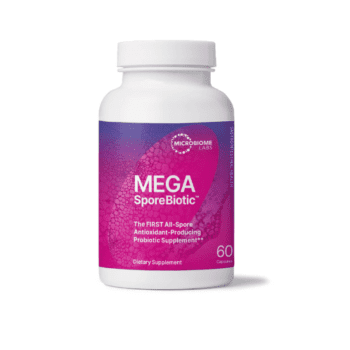
- Select options This product has multiple variants. The options may be chosen on the product page
MegaSporeBiotic
$59.99 – $176.95MegaSporeBiotic™ is a 100% spore-based, broad-spectrum probiotic shown...
-
MegaSporeBiotic For Kids Gummies
$39.00MegaSporeBiotic™ Gummies are a 100% spore-based proprietary probiotic...
-
MegaMucosa
$59.99MegaMucosa is the first complete mucosal support supplement...

Meet Your Microbiome: The Human Microbiome and How to Optimize It
Meet Your Microbiome: The Human Microbiome and How to Optimize It On and in the average human, there reside approximately

Benefits of Probiotics Including Improved Gut Health
Benefits of Probiotics Including Improved Gut Health “Probiotics” has become quite the buzzword – with countless products and supplements proudly

Gut Microbiome Health and the Gut-Immune System Connection: Part 2 Lower GI
Gut Microbiome Health and the Gut-Immune System Connection: Part 2 Lower GI The diverse community of microbes in your digestive

Gut Microbiome Health and the Gut-Immune System Connection: Part 1 Upper GI
Gut Microbiome Health and the Gut-Immune System Connection: Part 1 Upper GI The message is out: gut health is critical




